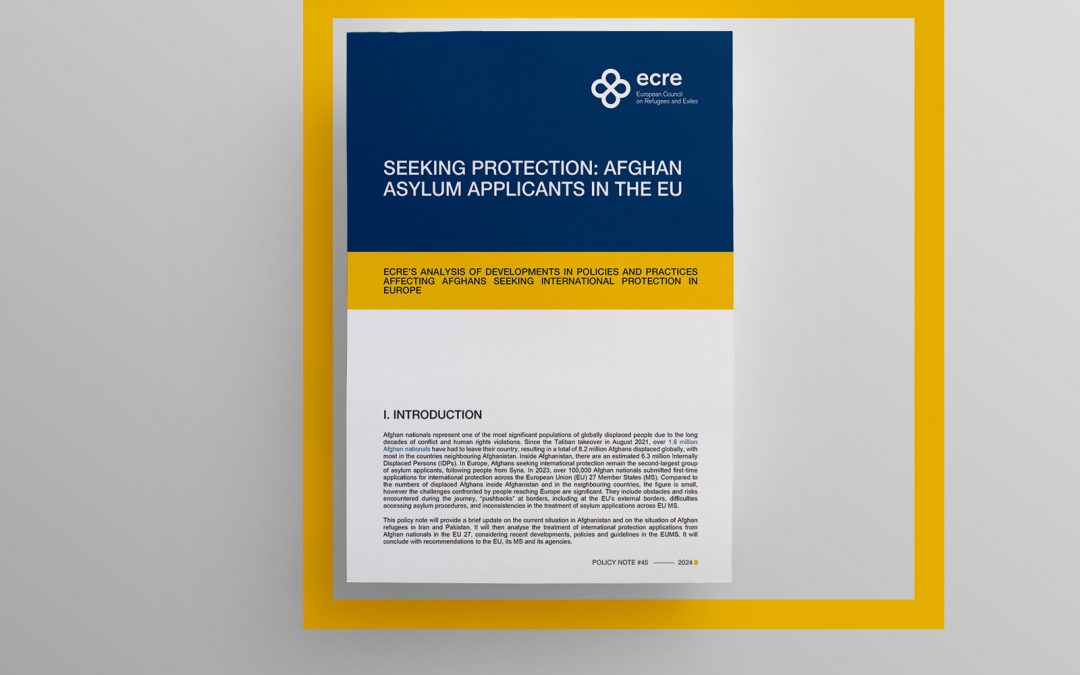ECRE has published a policy note which analyses developments in policies and practices affecting Afghans seeking international protection in Europe. It provides a brief update on the current situation in Afghanistan and on the situation of Afghan refugees in both Iran and Pakistan. It also analyses the treatment of international protection applications from Afghan nationals in EU member states (MS), taking into account recent policy developments.
Since the Taliban takeover in August 2021, more than 1.6 million Afghan nationals have had to leave their home country, resulting in a total of 8.2 million Afghans displaced globally, mostly in the countries neighbouring Afghanistan. Inside Afghanistan, there are an estimated 6.3 million internally displaced persons (IDPs). In Europe, Afghans seeking international protection remain the second-largest group of asylum applicants, following people from Syria. In 2023, over 100,000 Afghan nationals submitted first-time applications for international protection across the 27 EU MS. Compared to the numbers of IDPs inside Afghanistan and its neighbouring countries, the figure is small. However, the challenges confronted by those Afghans who reach Europe are significant. In addition to the obvious risks involved in the journey from Afghanistan, they include “pushbacks” at borders, difficulties accessing asylum procedures and inconsistencies in the treatment of asylum applications between EU MS.
ECRE asserts that Afghan nationals who are denied protection cannot currently be returned to Afghanistan due to the country’s situation and the principle of non-refoulement, which should be considered when applying Article 5 of the recast Return Directive. The suspension of return and deportation should continue until security and stability are established. Before deciding to issue a return decision, the authorities must assess whether returning rejected applicants would comply with fundamental rights, including those outlined in Article 3 of the European Convention on Human Rights and in Article 19 of the EU Charter of Fundamental Rights.
The policy note concludes with concrete recommendations to the EU institutions and agencies and EU MS.

